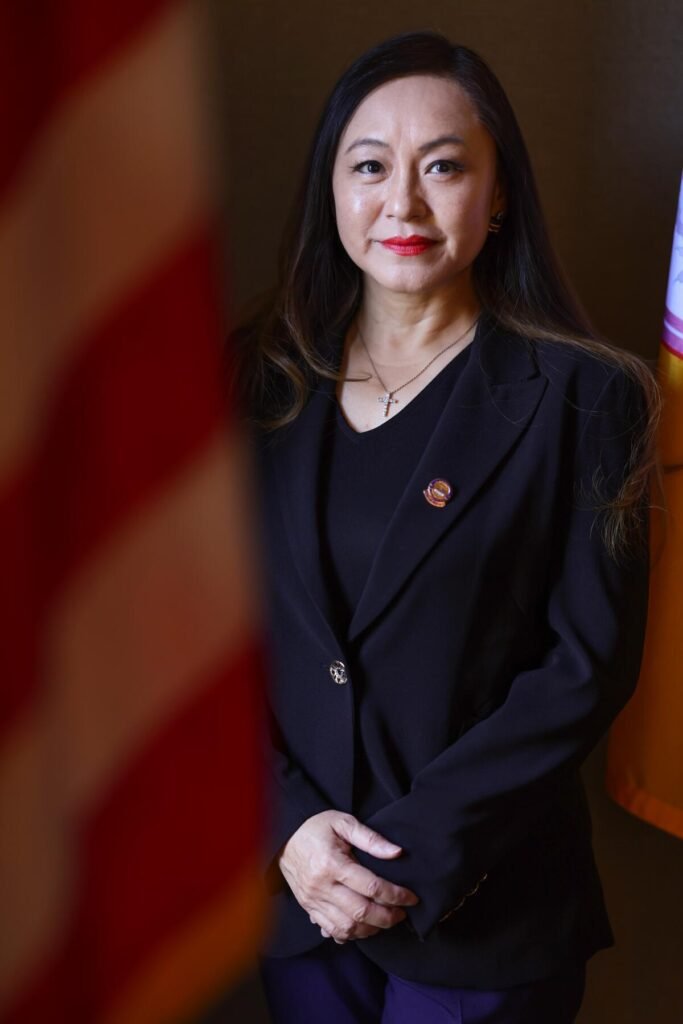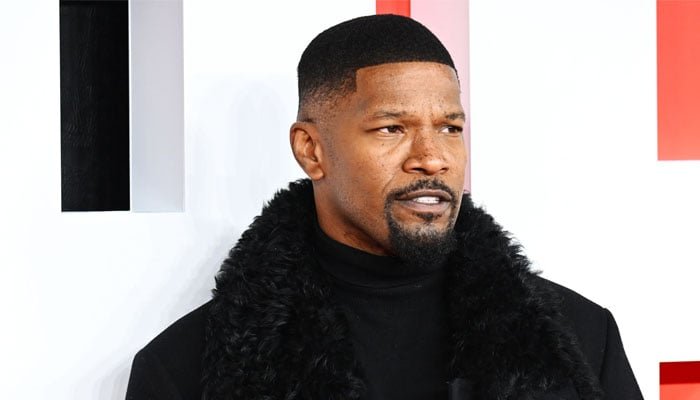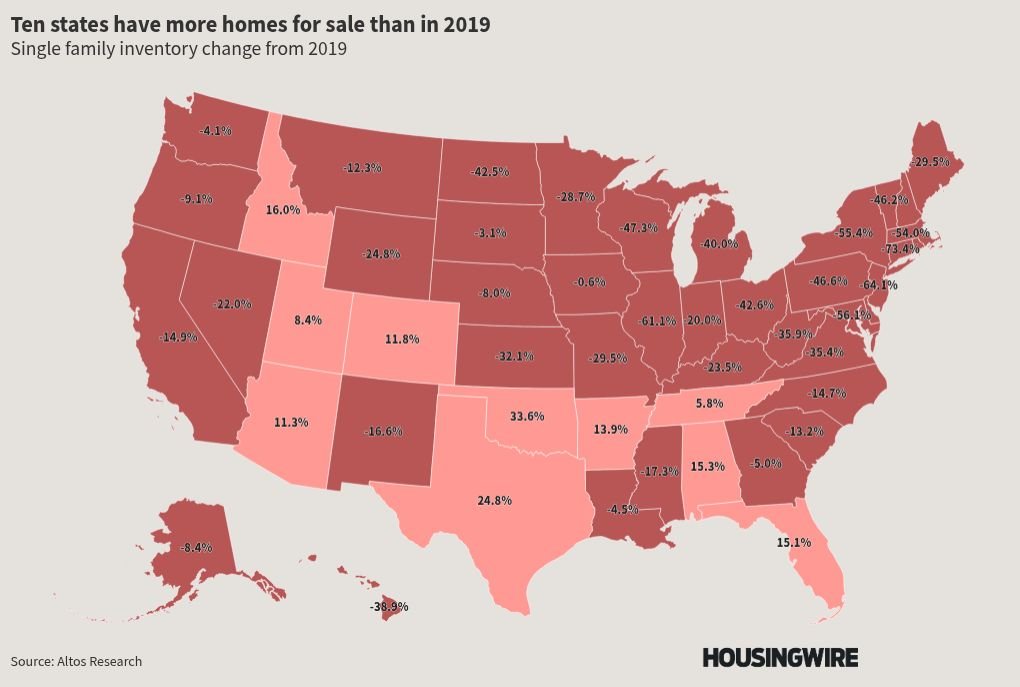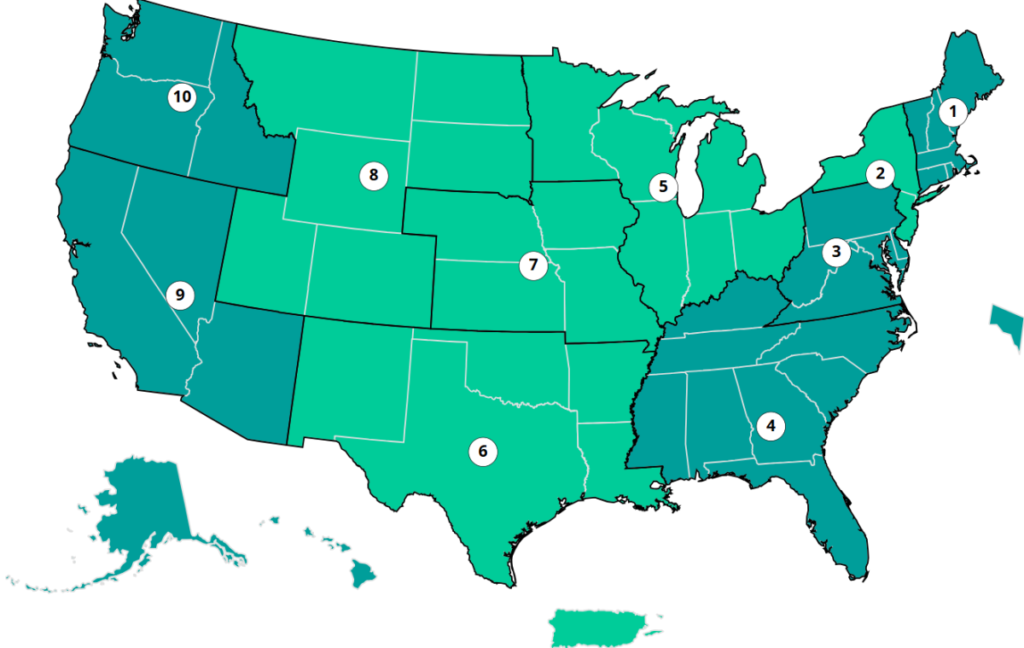Ukrainian forces continue to advance into Russian territory, but the number of settlements it has captured has become a point of contention—with Kyiv’s figures more than double that of Moscow’s.
As Ukraine’s surprise incursion into Russia’s southwestern Kursk region reaches its second week, the differing claims demonstrate a new political front in the operation, with Russia attempting to quell both the military advance and the reputational damage caused by Kyiv’s raid.
“We are expanding the area of active operations. The Commander-in-Chief reported that our forces control 74 settlements in the Kursk region,” Ukrainian President Volodymyr Zelensky said in an address on Tuesday, citing Colonel General Oleksandr Syrskyi.
He went on to say that “hundreds” of Russian soldiers had been captured during the operation, contributing to the country’s prisoner-of-war “exchange fund,” and said that all of these service members will receive “humane treatment.”

Ukrainian President Volodymyr Zelensky at the 75th NATO Summit on July 9, 2024, in Washington, DC. He claims that his forces have taken control of 74 settlements in Russia’s Kursk Oblast since launching its surprise incursion.
Bonnie Cash/Getty Images
“We have proven once again that we, Ukrainians, are capable of achieving our goals in any situation—capable of defending our interests and our independence,” he added. “And we must make full use of our achievements. And we will.”
Newsweek has contacted the Russian Foreign Ministry for comment on the extent of Ukraine’s advance into Kursk and Zelensky’s estimate of the captured settlements.
During a Monday conference with Russian President Vladimir Putin and other high-ranking officials, Kursk’s acting governor Aleksey Smirnov said that Ukraine had taken hold of 28 settlements in the region.
In footage of the exchange released by Russian state-owned news agency RIA Novosti, Putin can be seen reacting with shock to Smirnov’s claim, interrupting the governor and demanding to know the “social and economic situation” in the region.
Dr. Jade McGlynn, a historian and research fellow at the War Studies department of King’s College London, suggested to Newsweek that the disparity in the two states’ estimates stems from Putin’s attempt to control the narrative of the incursion.
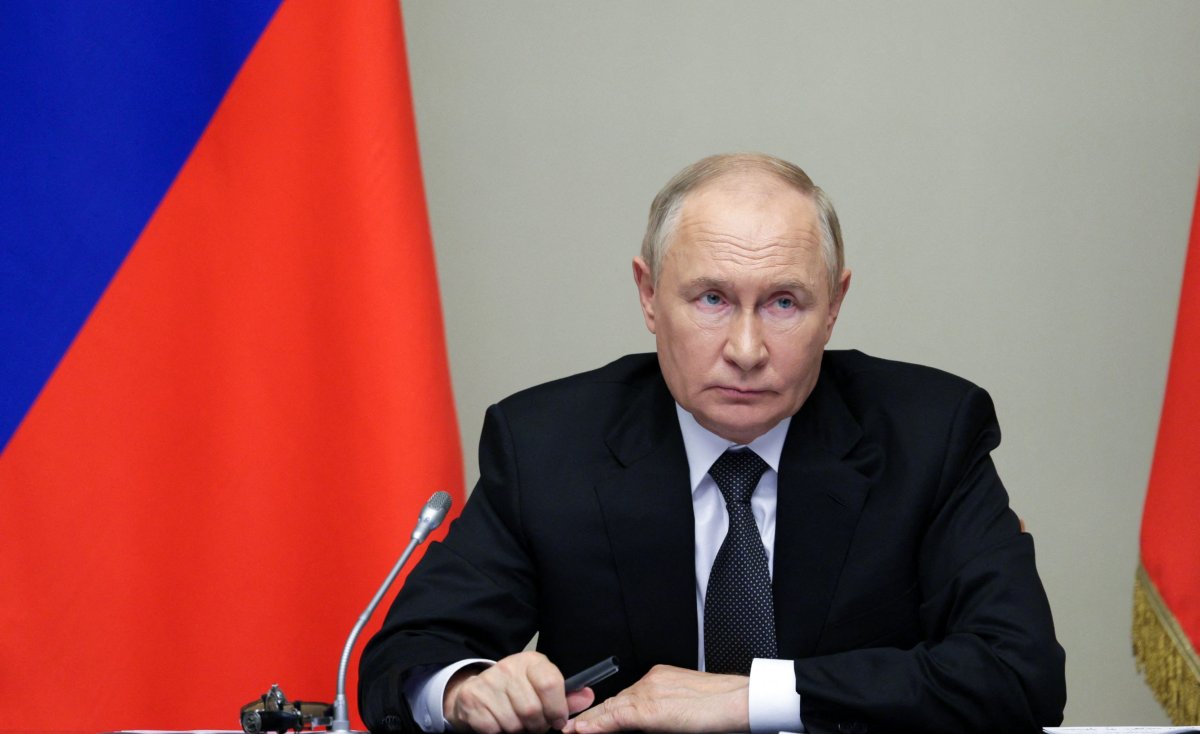
Russian President Vladimir Putin holds a meeting regarding Kursk region on August 12, 2024, in Novo-Ogaryovo outside Moscow. Governor Aleksey Smirnov told Putin during the meeting that Ukraine had taken control of 28 settlements.
Gavriil Grigorov/AFP via Getty Images
“Russia is trying very hard to downplay the Ukrainians’ successes,” McGlynn said. “Putin became publicly frustrated with the Kursk governor when he started talking about the reality of how much territory Ukraine holds. The [Federal Security Service] have warned the very pro-war Z-Bloggers to be less honest about what is happening too.”
Z-Bloggers are Russian pro-war social media “influencers” whose name stems from the emergence of the letter as a militarist symbol for Russia’s “special military operation” in Ukraine, according to the BBC.
According to the Institute for the Study of War (ISW), which has been tracking Ukraine’s territorial gains since Kyiv launched the incursion from its northeastern Sumy region last Tuesday, Ukrainian forces “are operating in or near roughly 41 settlements in Kursk Oblast as of August 13.”
The ISW said that it could “not assess that Ukrainian forces control all of the territory within the maximalist extent of claimed Ukrainian advance,” and observed Zelensky’s ambiguous use of the word “control” when referring to the 74 localities, which could mean wielding administrative control or simply operational presence.
However, it noted that Ukraine’s claims may be true, and that the discrepancy in the figures could be the result of “the inherent limitations of ISW’s open-source methodology and commitment to using only publicly available information.”
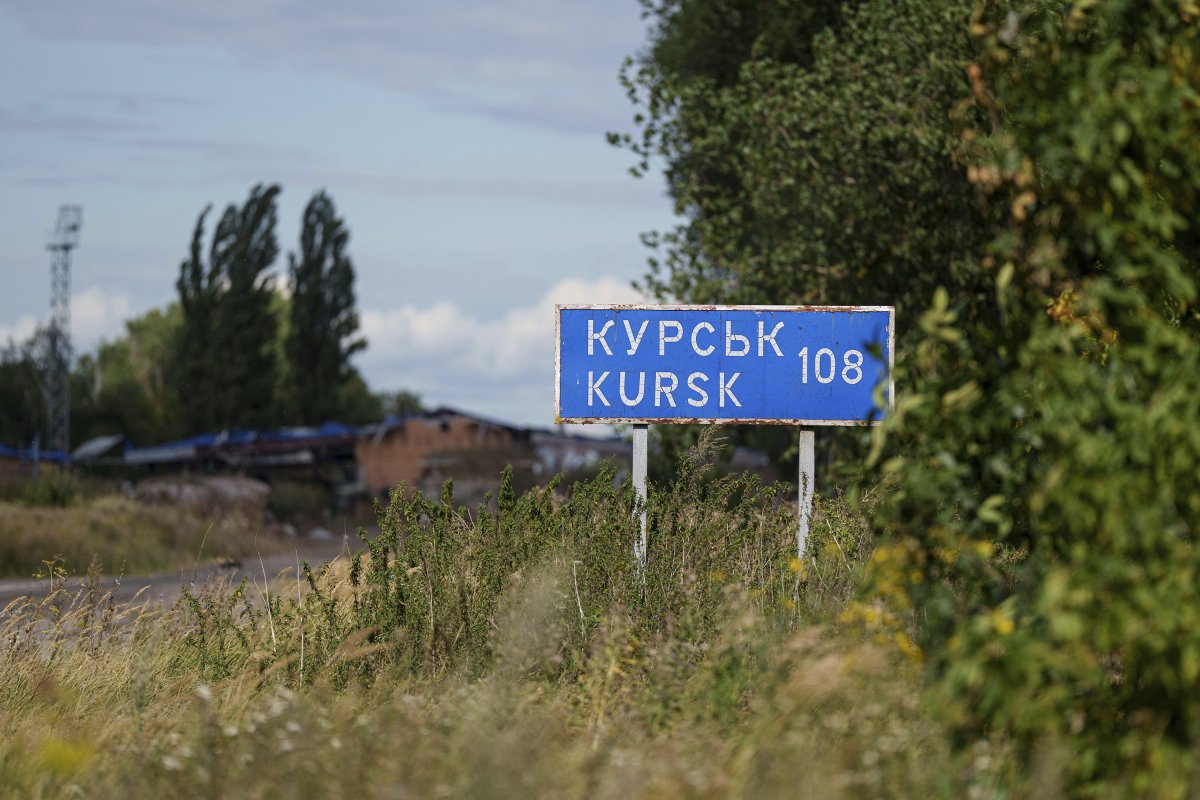
A road sign saying “Kursk 108 [km]” on the Russian-Ukrainian border on August 13, 2024. The two countries have offered differing assessments of Ukraine’s advances into Russian territory.
Evgeniy Maloletka/Associated Press
On Tuesday, Ukraine’s Foreign Ministry spokesperson Heorhii Tykhyi said that the country is “not interested” in capturing territory in Kursk and that the raid was an effort to “protect the lives of our people,” given its inability to use long-range capabilities provided by the U.S., per an American stipulation on the weapons transfer.
Tykhyi continued: “If Ukraine could strike the enemy troops on their territory, from where they threaten Ukraine, then Ukraine would be in a much better position to protect itself.”
On Monday, however, reports emerged that Ukrainian forces have been digging trenches in the oblast, which one Russian journalist interpreted as an effort to “gain a foothold in our ancestral territory.”
According to McGlynn, one of Ukraine’s potential motivations for the incursion could be to strengthen its leverage for any future land-swap deal with Russia.
“The Russians understand the motivations of Ukraine as trying to strengthen its negotiating position, so that rather than Ukraine always being pressured to give up territory, now it holds some Russian territory it has more agency and can propose land swaps,” she said.
However, McGlynn added that Ukraine will need to “at least hold on to and occupy the territories it currently holds” in order for land swaps to become a realistic proposition.
Do you have a story we should be covering? Do you have any questions about this article? Contact LiveNews@newsweek.com.




